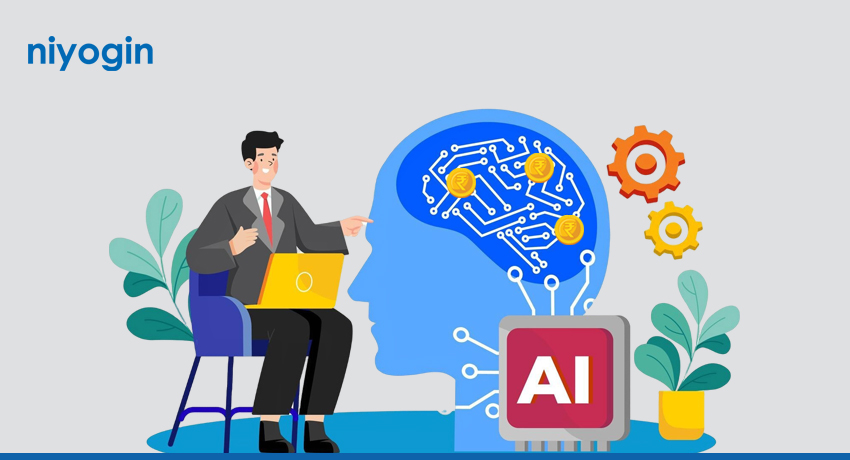India’s fintech sector has been one of the key drivers behind the rise of embedded finance. With its massive population, diverse financial needs, and high mobile penetration, India is an ideal market for this transformation. The combination of government support, digital infrastructure which aims to provide financial services to underserved communities, and the proliferation of smartphones has created an environment ripe for the growth of embedded finance. However, the opportunities are vast. As mobile penetration increases and fintech adoption continues to rise, embedded finance can play a crucial role in accelerating financial inclusion, especially among India’s large unbanked and underbanked populations. By providing easy access to essential financial products, India’s fintech sector can unlock new economic opportunities for millions. Conclusion The rise of embedded finance represents a paradigm shift in how financial services are delivered and consumed. With its seamless integration into everyday platforms, it offers convenience, personalization, and greater financial inclusion. India’s fintech sector, with its rapidly advancing digital infrastructure, is well-positioned to capitalize on the opportunities offered by embedded finance, ultimately transforming the financial landscape for millions of citizens. As the sector continues to evolve, it will be crucial for businesses, regulators, and consumers to collaborate in overcoming challenges, safeguarding security, and unlocking the full potential of this transformative trend.
Month: December 2024
How Gen AI is Revolutionizing Customer Experience in Fintech
Generative AI is rapidly reshaping industries, and fintech is no exception. By utilizing the power of AI, fintech companies are redefining customer experiences, making financial services more accessible, personalized, and efficient. Personalized Financial Advice One of the most significant impacts of Gen AI on fintech is the ability to provide highly personalized financial advice. AI-powered chatbots and virtual assistants can analyze vast amounts of data, including transaction history, spending patterns, and risk tolerance, to offer tailored recommendations. For instance, a chatbot can suggest investment opportunities aligned with a user’s financial goals or recommend budgeting strategies to optimize cash flow. A recent study by Capgemini found that 71% of consumers are willing to share their financial data with AI-powered tools in exchange for personalized advice. This growing trust in AI-driven solutions underscores the potential for Gen AI to revolutionize financial planning and advisory services. Enhanced Customer Support Gen AI-powered chatbots and virtual assistants are transforming customer support in the fintech industry. These AI-driven tools can handle a wide range of inquiries, from simple account balance checks to complex troubleshooting. By automating routine tasks, these tools free up human agents to focus on more complex issues, improving overall customer satisfaction. Moreover, AI can analyze customer sentiment in real-time, allowing businesses to identify and address potential issues proactively. This proactive approach can significantly reduce customer frustration and churn. Fraud Detection and Prevention Fraudulent activities pose a significant threat to the fintech industry. Gen AI can play a crucial role in detecting and preventing fraud by analyzing vast amounts of transaction data in real-time. AI algorithms can identify anomalies and suspicious patterns that may indicate fraudulent activity, enabling financial institutions to take swift action to protect their customers. A study by Juniper Research estimates that AI-powered fraud prevention solutions could save the financial services industry $8 billion by 2026. Seamless User Experiences Generative AI is revolutionizing the fintech industry by enabling companies to deliver seamless, intuitive, and highly personalized user experiences. For instance, AI-powered voice assistants allow users to effortlessly interact with their financial accounts using natural language, streamlining the process of managing finances on the go. Moreover, AI-driven personalization tailors the user interface to individual preferences, offering customized recommendations and services that significantly enhance user engagement and satisfaction. By leveraging these advanced AI technologies, fintech companies are not only improving convenience but also creating a more dynamic and user-centric financial environment. The Future of Fintech As generative AI continues to evolve, its transformative impact on the fintech industry is poised to expand significantly. By embracing this technology, fintech companies can unlock exciting new opportunities, enhance customer experiences, and gain a substantial competitive advantage. While it’s important to address ethical considerations and ensure responsible and transparent AI usage, the potential for growth is immense. With the power of AI, fintech companies can build deeper, more meaningful relationships with their customers, foster trust, and drive sustained long-term success.
The Future of Fintech: How Gen AI is Reshaping the Industry
Generative Artificial Intelligence or Gen AI as we call it is rapidly reshaping the fintech landscape, offering significant advancements that are transforming financial services across the globe. As AI models become more advanced, they are driving the next generation of fintech innovations, improving customer experiences, optimizing operational efficiency, and enhancing security protocols. By analyzing vast amounts of data and automating complex processes, Gen AI is poised to redefine the way financial institutions and fintech companies interact with customers and make strategic decisions. 1. Personalized Financial Advice Gen AI leverages vast data sets, including spending habits, income, and economic trends, to deliver highly personalized financial advice, such as customized investment strategies, retirement planning, and budgeting solutions. It can also forecast market movements and recommend adaptive strategies, helping clients make informed decisions. Furthermore, AI-powered virtual assistants and chatbots provide real-time, 24/7 customer support, delivering tailored responses, resolving specific concerns, and offering proactive guidance. This enhances customer satisfaction by ensuring fast, accurate, and accessible service at any time, creating a seamless and personalized experience. 2. Automated Financial Processes AI-driven automation is transforming back-office operations within the fintech industry by streamlining tasks that were traditionally time-consuming and manual. Processes like loan processing, fraud detection, and compliance checks are now being automated, enabling financial institutions to operate more efficiently and accurately. AI can analyze vast and complex data sets in real-time, identifying patterns and anomalies that human teams might miss, thus enhancing decision-making and reducing the risk of errors. This capability extends to optimizing risk management by assessing creditworthiness, predicting potential risks, and fine-tuning investment strategies with greater precision. The result is a more efficient operation that reduces costs, improves regulatory compliance, and delivers better financial outcomes for both institutions and customers. By leveraging AI, fintech companies can enhance their service offerings, respond faster to market changes, and provide more personalized, data-driven financial solutions. 3. Enhanced Security and Fraud Prevention AI is revolutionizing fintech by bolstering security and fraud prevention. By analyzing vast amounts of transaction data in real-time, AI can swiftly identify anomalies and suspicious patterns, enabling swift action to thwart fraudulent activities. This proactive approach significantly reduces financial losses and builds trust between financial institutions and their customers. Furthermore, AI acts as a vigilant guardian of sensitive financial information. By continuously monitoring networks and systems, AI can proactively identify vulnerabilities, predict potential attacks, and deploy countermeasures before damage occurs. 4. Innovative Financial Products AI is driving the evolution of fintech by enabling the creation of personalized financial products and innovative business models. From tailored insurance policies and investment portfolios to predictive analytics for risk assessment and AI-powered trading platforms, Gen AI is reshaping the financial landscape, delivering more relevant and efficient solutions. The Road Ahead The future of fintech powered by Gen AI looks promising. As AI technologies continue to evolve, they will become even more integrated into financial services, driving innovation, efficiency, and customer satisfaction. Financial institutions and fintech companies that embrace AI will be better equipped to meet the demands of an increasingly digital, data-driven world. However, the challenges associated with AI adoption—particularly in the areas of data privacy, ethics, and regulation—must be carefully managed to ensure that the benefits of this technology can be fully realized. By addressing these concerns, the fintech industry can build a more efficient, inclusive, and customer-centric future for financial services. As we look to the future, the full potential of AI in reshaping the financial landscape will continue to unfold, ushering in an era of smarter, more personalized, and more efficient financial services.


